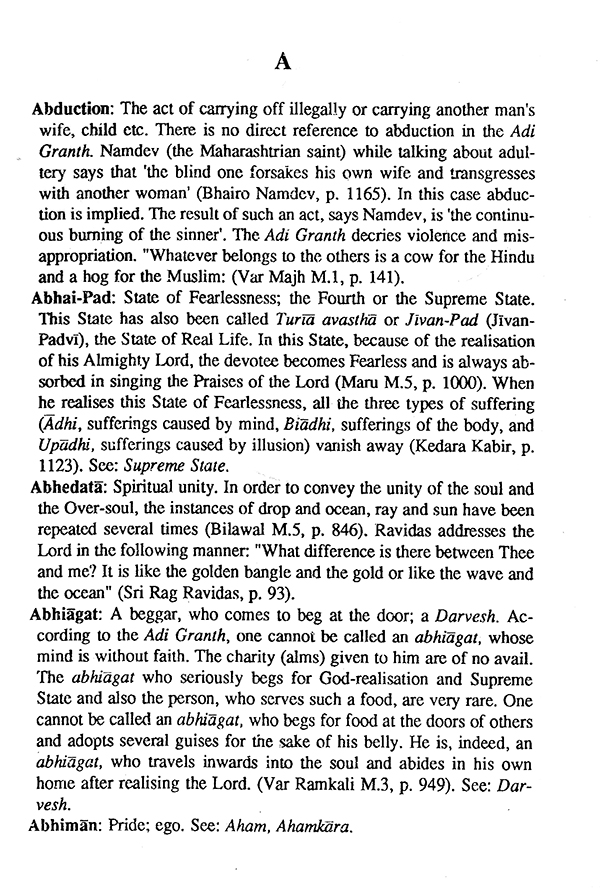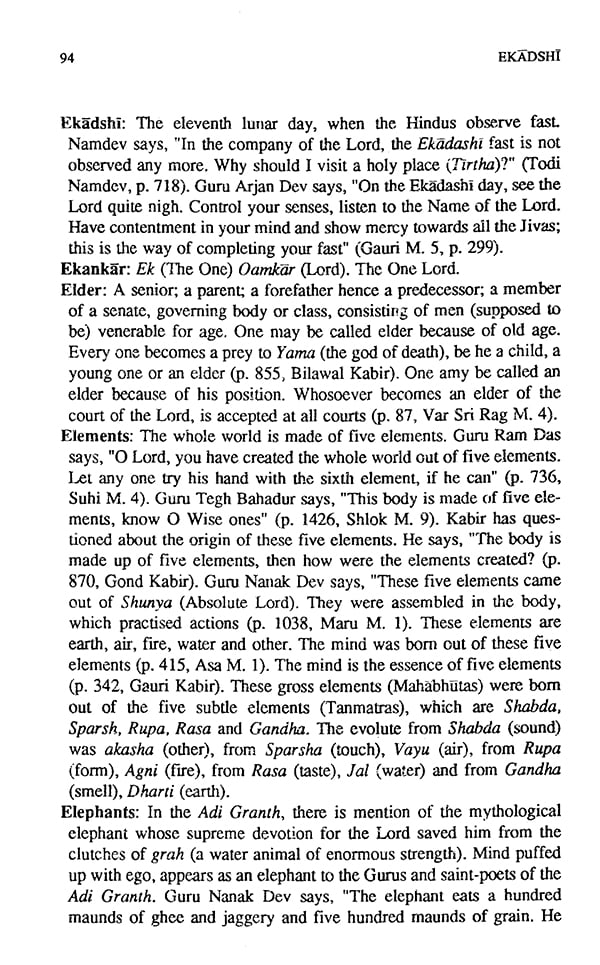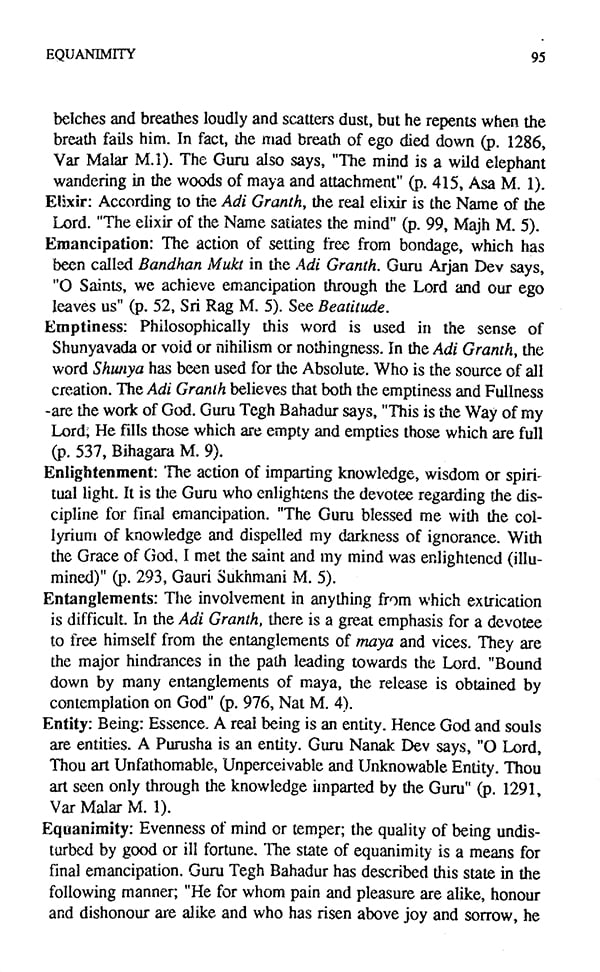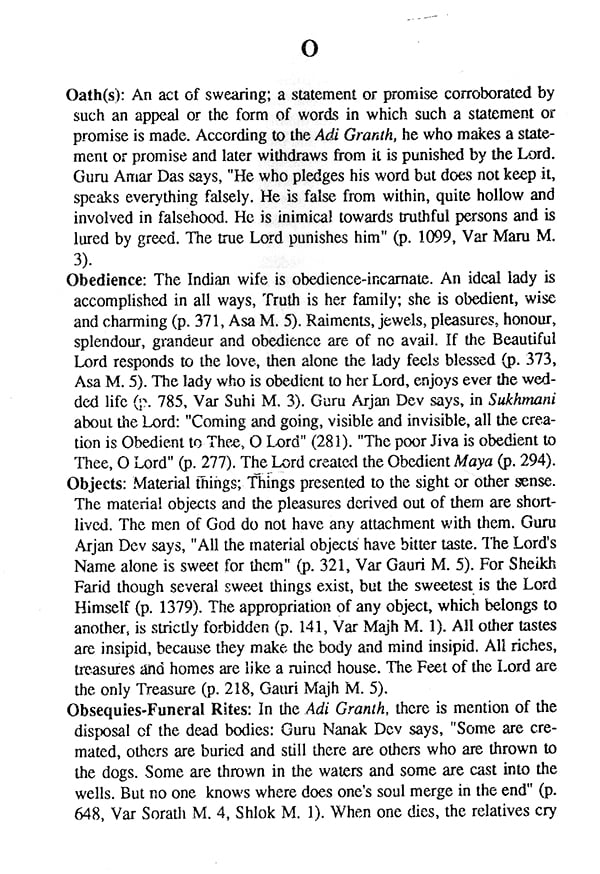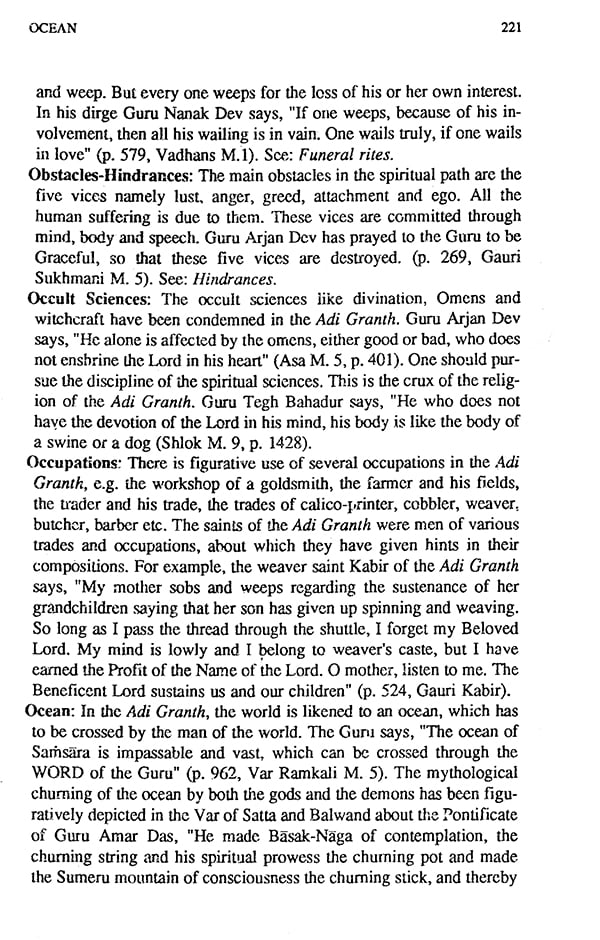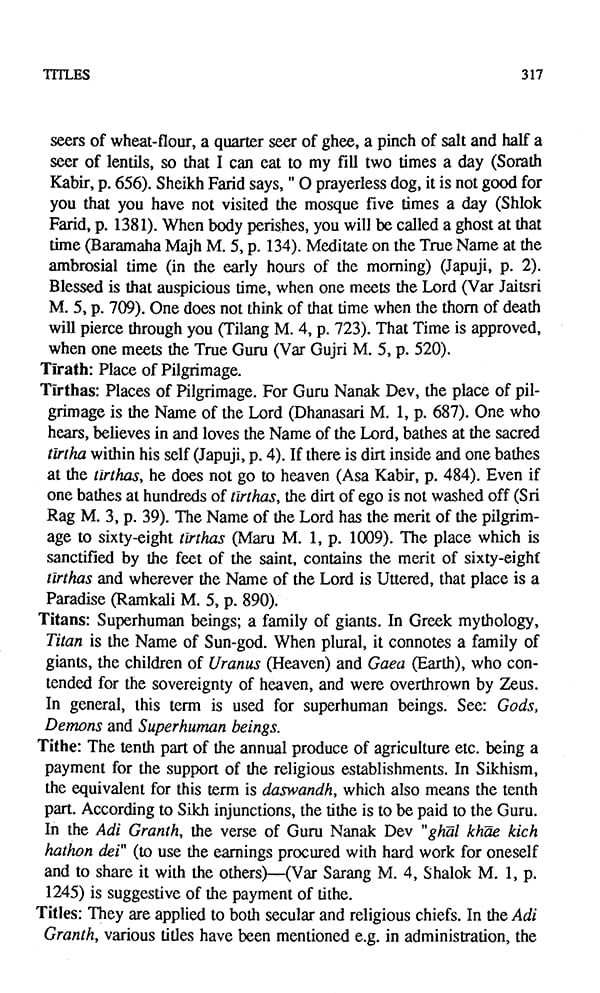
A Conceptual Encyclopaedia of Guru Granth Sahib
Book Specification
| Item Code: | NAZ189 |
| Author: | S.S. Kohli |
| Publisher: | Manohar Publishers and Distributors |
| Language: | English |
| Edition: | 2021 |
| ISBN: | 9788173040061 |
| Pages: | 388 |
| Cover: | HARDCOVER |
| Other Details | 9.00 X 6.00 inch |
| Weight | 560 gm |
Book Description
Sikhism is the youngest world religion and has adherents all over the world. The monumental work The Sacred Books of the East while dealing with important works of Hinduism, Jainism, Bud-dhism, Islam, Taoism, Confucianism, Zoroastrianism, Judaism and Christianity does not deal with Sikhism. The present work seeks to fill this gap and meet the long felt needs of people interested in understanding the conceptual framework of Sikhism.
In the introduction to this comprehensive work, the author brings out the unique features of the Sikh holy scripture Guru Granth Sahib and explains the basic tenents of Sikhism. He has included about 1500 relevant entries (arranged alphabetically) and explained the concepts definitively and compares such concepts in other faiths thus making the work a very useful reference tool.
This work of painstaking scholarship would be found useful both by students and researchers engaged in the study of Sikh scriptures, as well as those interested in a study of comparative religion.
S.S. Kohli, retired as Professor and Head, Department of Punjabi, Punjab University, Chandigarh and was a renowned scholar of Sikh philosophy and religion. He passed away in 2003.
His important publications include An Analytical Study of the Adi Granth; Dictionary of Guru Granth Sahib; Dictionary of Mythological References in Guru Granth Sahib; Translation of the Dasam Granth Sahib; Ritualism and it's Rejection in Sikhism; Philosophy of Guru Nanak; Outlines of Sikh Thought; Sikh Ethics; Sikh Philosophy; Yoga of the Sikhs; Sikhism and Guru Granth Sahib; The Sikhs and Sikhism; Real Sikhism.
I had been thinking of doing this encyclopaedic work on this youngest of the world scriptures ever since I completed my doctoral thesis entitled 'A Critical Study of the Adi Granth' in 1937. However, I could not start work on the project due to my pre-occupations as a Professor in Punjab University, Chandigarh, Director, Guru Nanak Foundation, New Delhi and Director of the Punjab State University Text Board, Chandigarh.
I had meanwhile published A Critical Study of the Adi Granth, Outlines of Sikh Thought, Philosophy of Guru Nanak and Sikh Ethics. These works gave me penetrating insight in the Sikh philosophy and religion. In the meantime a reprint of the classic The Sacred Books of the East (50 vols. set) edited by Max Muller also became available. The fiftieth volume is an index to forty-nine volumes of the series and has been compiled with commendable thoroughness and industry by Prof. Wintcrnitz. In the preface to this volume Professor Macdonnel writes 'The Sacred Books of the East include all the most important works of the seven non-Christian religions that have exercised a profound influence on the civilisations of the continent of Asia. Of the Indian religions, the Vedic-Bralunanic system here claims twenty-one volumes, Buddhist ten, and Jainism two. Eight volumes comprise translations of the sacred books of the Persians, two volumes represent Islam, and six the two main indigenoug systems of China, Confucianism and Taoism'.
The series thus represents seven non-Christian religions and excludes 'Shintoism' and 'Sikhism'. Sikhism is the youngest world religion with followers all over the world and its scripture the 'Adi Granth' has several translations in English. With the project already in my mind and fresh impetus provided by Prof. 'Winternitz's work, I selected more than 1200 entries from the index volume appropriate for the study of Sikh scripture for my work and was able to start work on it in right earnest in 1986 with the award of a fellowship by the Indian Council of Philosophical Research. I now present the complete work for the discerning readers. I am conscious of the fact that there would be short-comings here and there in a work like this and I leave it to better-equipped scholars to improve upon it.
**Contents and Sample Pages**